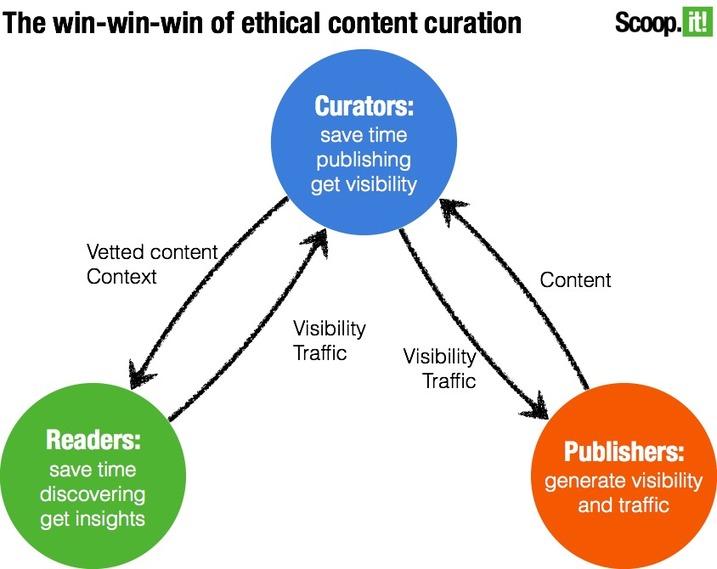The Internet Of Things Is About Data, Not Things
02/08/20153 out of 4 doctors have used health apps and wearables
02/08/2015Is content curation ethical? A data-driven answer
Ever since we started to work on Scoop.it, we’ve had this question: is it fair to use other people’s content for your own good: in other words, how ethical is content curation? Is it even legal?
A quick look at history clearly shows that artists and scientists never created in a vacuum but have always leveraged pre-existing work to develop their own. And that’s for the greater good. Closer to us, there is a multitude of online media sites which embraced content curation as an alternative or a complement to the content they produce: the Huffington Post is a famous example but Upworthy and BuzzFeed are others and even the respected New York times started doing it.
Of course, such an answer won’t satisfy your legal department or your own need to have a more pragmatic answer. So as we’ve now been arounds for several years and, more importantly, have seen millions of users publish more than 100 million pieces of content, we feel we can not only give you a recap of the facts that make content curation ethical but also back that out with data. Continue reading →
Source: blog.scoop.it
This is not just a recap of the facts that make good content curation perfectly ethical and mutually beneficial: I also wanted to give some data to back up these facts since we’ve now seen content curation become a mainstream practice with more than 2 million professionals using Scoop.it and embracing it as a key part of their social media and online publishing experience.
We’ve not only seen how we could help them make content curation impacting for their online presence and professional brands but we’ve seen how positive it was for content creators and how they reacted to it.




